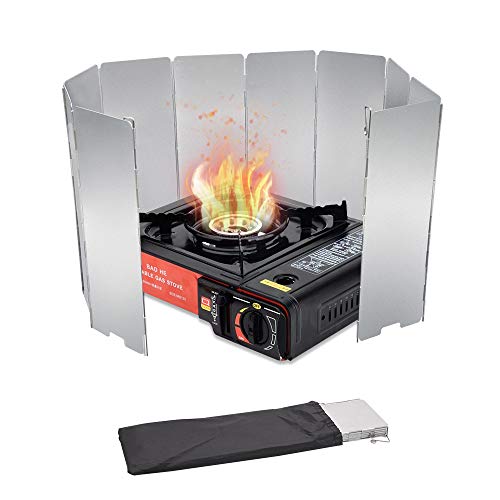Discover the joys of going to camping. From the benefits to the essentials, explore how camping enhances well-being, builds memories and fosters connections with nature.

Camping isn’t just an escape from city life; it’s a return to simplicity, where the stars shine brighter and the air feels fresher. If you’re considering going to camping, get ready to experience the joy of outdoor adventure, whether it’s your first time or your hundredth. In this guide, we’ll walk through the essentials of camping life, the benefits of getting outside, different types of camping options like RV camping and glamping and provide beginner tips for a memorable and stress-free experience.
What is Camping?
Camping is a chance to immerse yourself in nature, sleeping under the stars and enjoying activities that bring you closer to the environment. It can be as rustic as setting up a tent in the backcountry or as comfortable as staying in a camper van or RV. There are various ways to approach camping, from traditional tents and RV life to luxurious glamping sites. At its core, camping reconnects us with the outdoors, providing a break from screens, emails and daily stressors.
Read More:
7 Essential Skills Every Camp Counselor Needs
Why Going to Camping is Good for You

The benefits of camping are vast, with positive effects on both mental and physical health. Going camping reduces stress, lowers blood pressure and offers a break from the digital world. Here’s why camping is so good for you:
- Stress Reduction: Nature has a calming effect on the mind. Studies show that time in the outdoors can lower cortisol levels, reducing anxiety and stress.
- Increased Physical Activity: Setting up camp, hiking and other camping activities keep you moving and improve physical fitness.
- Better Sleep: Natural light exposure during the day and minimal artificial light at night help reset our circadian rhythms, leading to better sleep.
- Mental Benefits: Camping encourages mindfulness, helping you focus on the present moment and reconnect with yourself.
Planning a Camping Trip: Your Checklist
A successful camping trip starts with careful planning. Whether you’re going to camp in a tent or embracing RV life, having a plan will ensure a smooth and enjoyable trip. Here’s a checklist to help you get started:
- Choose a Destination: Decide where you’d like to camp. National parks like those in Washington State Mount Rainier and Olympic offer scenic spots perfect for outdoor activities.
- Select a Campsite: Research campgrounds in your chosen area and book in advance if possible, especially during peak season.
- Make a Packing List: Remember to pack camping essentials, such as your tent, sleeping bag, first-aid kit, cooking supplies and extra clothing.
- Check the Weather: Weather can change quickly, so pack accordingly with rain gear, warm layers or sun protection.
- Prepare Your Meals: Plan meals in advance to avoid the temptation of unhealthy snacks and ensure you have everything needed for campsite cooking.
Camping Essentials: What to Pack

Whether you’re new to camping or a seasoned pro, packing the right camping essentials can make all the difference. Here’s what to bring:
- Tent or RV: Decide on the best setup for your adventure. RV camping provides amenities like running water and electricity, while tents offer a more rustic experience.
- Sleeping Bag and Sleeping Pad: A quality sleeping bag and pad ensure a good night’s sleep and insulation from the ground.
- Cooking Supplies: Bring a portable camping stove, fuel, a cooler and all necessary utensils. Cooking outside can be one of the highlights of camping life.
- Light Sources: Headlamps, lanterns or flashlights are essential for nighttime visibility.
- First-Aid Kit: Always bring a basic first-aid kit, including bandages, antiseptics and necessary medications.
Exploring the Different Types of Camping
Camping isn’t one-size-fits-all. Here are some popular ways to camp:
- RV Camping: Ideal for those who want some comfort, RV life combines the freedom of camping with the amenities of a home. Many campgrounds cater specifically to RVs, with hookups for water, sewage and electricity.
- Tent Camping: Traditional and affordable, tent camping brings you close to nature. It requires more preparation and equipment but offers an authentic experience.
- Glamping: For a more comfortable option, glamping (glamorous camping) provides luxury tents or cabins with amenities like real beds, private bathrooms and sometimes even Wi-Fi. This style is perfect for those who want to experience nature without sacrificing comfort.
Top Camping Spots in Washington State
Washington state is a camping paradise, known for its lush forests, rugged mountains and breathtaking coastline. Here are a few top camping spots:
- Olympic National Park: Known for its diverse ecosystems, this park has rainforests, alpine areas and a wild coastline. Campgrounds range from primitive sites to those with more facilities.
- Mount Rainier National Park: This iconic volcano is surrounded by beautiful campgrounds and hiking trails, offering views of snow-capped peaks and alpine meadows.
- North Cascades National Park: For those seeking solitude and a remote experience, the North Cascades offer rugged wilderness and crystal-clear alpine lakes.
These destinations are ideal for both seasoned campers and beginners, providing a blend of easy access and natural beauty.
Mental and Physical Benefits of Camping for Students
Camping is particularly beneficial for students, who often feel the pressure of academics and digital overload. Getting away from screens and spending time outdoors can improve mental clarity, reduce anxiety and boost mood. It’s also an excellent way for students to build independence, learn problem-solving skills, and develop an appreciation for nature.
Going Camping with Family: Building Bonds and Creating Memories
Camping offers the perfect opportunity to bond with family, free from distractions. It’s a chance to work together, tell stories around a campfire and try new activities, like fishing or hiking. Here are some family-friendly camping tips:
- Pack Kid-Friendly Gear: Child-sized sleeping bags and backpacks make a big difference.
- Plan Fun Activities: A scavenger hunt, nature walk or stargazing are activities the whole family can enjoy.
- Bring Familiar Comforts: Small items like a favourite blanket or stuffed animal can help kids feel more at ease.
Tips for Beginners: Going to Camping for the First Time
If you’re new to camping, start with a well-equipped campground that offers basic amenities. Here are some beginner tips:
- Practice Setting Up: Familiarize yourself with setting up your tent or using your RV before heading out.
- Keep it Simple: Plan a short trip to ease into the camping experience, especially if you’re camping with kids or pets.
- Embrace Flexibility: Weather and other factors can change your plans, so stay open and adaptable.
Staying Safe While Going Camping
Safety is key to any outdoor adventure. Here are a few important safety tips:
- Wildlife Awareness: Learn about local wildlife and follow guidelines for food storage and interaction.
- Fire Safety: Respect fire rules, use established fire rings and always extinguish your fire before going to bed.
- Navigation: Have a map, compass or GPS device, especially if you’ll be in an area without reliable cell service.
Why Going to Camping is Worth It
Going to camping allows you to reconnect with nature, escape the fast pace of daily life and find peace in the simple beauty of the outdoors. Whether it’s through tent camping, RV life or even glamping, each trip offers a chance to recharge and gain new perspective. With fresh air, scenic views and physical activity, camping supports mental and physical well-being. Beyond the health benefits, camping is about building memories and creating experiences that last a lifetime.
Camping also cultivates gratitude. When you’re out in nature, you realize how little you actually need to be content. This mindset shift carries over into everyday life, making you more appreciative and present. So, the next time you feel the need for a break, consider going to camping.
From the lush forests of Washington to your nearest national park, nature is calling. Pack up your essentials, bring a spirit of adventure and embrace the many benefits of camping. Whether it’s your first time or you’re a camping veteran, each trip is a new opportunity to explore, recharge and make memories that will last a lifetime.

















